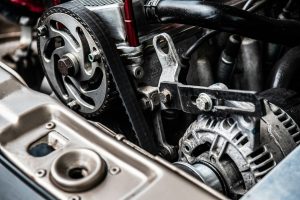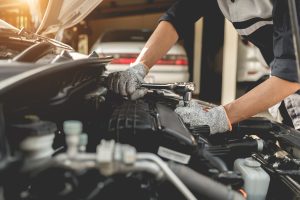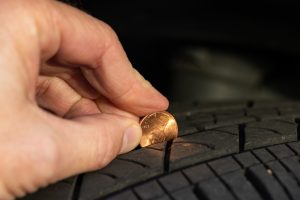If you’re watching a movie or an action TV series, brake failure makes things edge-of-your-seat exciting. If you’re on your way to work, brake failure is terrifying. George Automotive Services maintains ABS, disc, and drum brakes to ensure our customers can always rely on one of the most important safety features in their automobiles. We can help you avoid brake failure, so let’s talk about it for a minute.
Brake Failure Causes
Manufacturing defect is one thing that causes brake failure, but there are a handful of problems that will make stopping your car, crossover, truck, or SUV difficult. The common causes of brake failure include
- Neglect that allows the brake system parts to wear down and fail
- Overheating brake pads that glaze (smooth out) and can’t grip the rotors
- Scored or warped rotors that don’t fit right with the brake pads
- Leaking brake fluid that prevents the calipers from pressing against the pads
- Driving on wet and muddy roads that cake the brake pads and rotors
- Hydraulic fluid pressure loss caused by master cylinder failure
- Overloading your automobile beyond its maximum weight-bearing capacity
It’s important to understand how much your vehicle and your brakes can handle. For example, if you overload your car, you’ve just added momentum that the brakes were not designed to be able to stop.
Signs of Brake Failure
Suppose you never overload your vehicle; there are still ways your brakes can fail. The most common failure among passenger vehicles is overheating. This can happen if you ride the brakes when you’re stuck in a traffic jam or when you’re going down a steep hill. As the brake pads get hotter, they’ll glaze and start to squeal. As the brake fluid heats up, it will boil and you’ll smell an odor that reminds you of burning chemicals or carpet. Once you’ve reached this point, your brakes are bound to stop working.
Other signs of brake problems include
- Grinding, scraping, or squealing noises
- Vibration or wobbling in the brake pedal or steering wheel when you apply the brakes
- Leaking brown, oily fluid underneath the inside of your wheels
- Strange sensations when you step on the brake pedal, such as sponginess
- Your vehicle pulling to the right or left when you brake
- Your brake light turning on when you apply the brakes.
Don’t take chances. Stop by George Automotive Services in Danville, PA, the minute your vehicle shows signs of brake trouble. We’ll inspect the brakes and make any necessary repairs.





